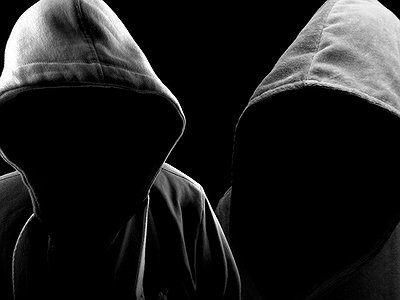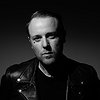Part 2
Could you take us through a day in your life, from a possible morning routine through to your work? Do you have a fixed schedule? How do music and other aspects of your life feed back into each other - do you separate them or instead try to make them blend seamlessly?
I have a pretty busy schedule these days. Music is always a big part of my daily life of course, whether it’s listening to new music, fresh demos for the label while walking around LA or traveling or working on my own stuff in my studio. I don’t have a super fixed schedule but between running Octopus, making music, and traveling I keep myself pretty busy.
Could you describe your creative process on the basis of a piece or album that's particularly dear to you, please? Where did the ideas come from, how were they transformed in your mind, what did you start with and how do you refine these beginnings into the finished work of art?
I think a lot of my ideas come from inspirations from daily life like I mentioned above. I like to use samples from things I might hear in a movie or out and about that really resonates with me. Sometimes it’s starting with some strange synth sequence and building something that fits with it. From there I just start messing around with it till it starts getting a life of its own.
There are many descriptions of the ideal state of mind for being creative. What is it like for you? What supports this ideal state of mind and what are distractions? Are there strategies to enter into this state more easily?
Life has so many distractions, finding a relaxed yet focused state of mind is crucial to being creative I think. If you wait till there’s no distractions or things bothering you, I think you’d be waiting your whole life to be honest. You’ve got to set aside time to not think about the daily distractions and focus on yourself and what you’re trying to accomplish. Try to set goals for a daily or weekly accomplishment in the studio and meet those smaller goals, instead of just going in open ended with no goals in mind. It’s easy to get distracted when there’s not a clear idea of what you’re trying to accomplish.
How is playing live and writing music in the studio connected? What do you achieve and draw from each experience personally? How do you see the relationship between improvisation and composition in this regard?
Playing live definitely requires a bit of improvisation and real time composition that’s similar to working in the studio. Knowing how you want a specific track to be arranged and how you want it to sound on the dancefloor are both crucial elements that need to be considered while you’re in the studio and also when you’re performing. When you’re in the studio making the tracks you kind of already are envisioning how it’s going to work on the dancefloor and what parts can be improvised to work with one given setting or another during the performance. During the performance aspects you kind of see it reversed and can take the reactions from the crowd back to the studio. You end up creating kind of a relationship between making the music in the studio and performing it live and seeing how those two factors evolve with one another.
How do you see the relationship between the 'sound' aspects of music and the 'composition' aspects? How do you work with sound and timbre to meet certain production ideas and in which way can certain sounds already take on compositional qualities?
I think the sound aspects and the composition aspects form kind of a symbiotic relationship during production. You sometimes go in with one idea and shape a sound to sound a certain way, and then suddenly it takes a bit of a different turn and you react to that either positively or negatively, make changes, let it become something different or let it take on a bit of a new direction and you work with it. In electronic music it’s like there’s so many ways to do things that getting stuck on one idea can be really restrictive. You’ve kinda just gotta let it flow and work with it as it does.
Our sense of hearing shares intriguing connections to other senses. From your experience, what are some of the most inspiring overlaps between different senses - and what do they tell us about the way our senses work? What happens to sound at its outermost borders?
Dance music as a whole has a really basic, tribal like entrancing vibe to it that people really relate to. Music as a whole can be used in so many different facets to help people connect with one another or to help people in a therapeutic sense that I think the relationship between our sense of hearing and our very existence is incredibly important. Our sense of hearing translates deeply into our subconscious brain waves and has incredible abilities to make us feel certain emotions, I don’t think that the full potential of the power of sound has really been discovered, but I’m excited to see where science takes it in the coming years.
Art can be a purpose in its own right, but it can also directly feed back into everyday life, take on a social and political role and lead to more engagement. Can you describe your approach to art and being an artist?
I think as an artist it’s our duty to the world to take what surrounds us in our political landscape, our environment and our daily lives and give back to the world our translation of that in our art. Music and art overall should help to preserve our surroundings for the future. I’m always influenced and inspired by the craziness around me, that’s what makes art fresh and forward thinking.
It is remarkable, in a way, that we have arrived in the 21st century with the basic concept of music still intact. Do you have a vision of music, an idea of what music could be beyond its current form?
Music itself is pretty timeless, it’s been around since early humans started beating sticks on rocks and I think it’s evolved over the centuries to an element of self-expression. Humans I think create music to represent that which is around them and to be able to connect with others in a way other than language. I’m able to play music in clubs and at festivals around the world to people who speak many different languages and we are all able to relate and connect on a level that is beyond what we can communicate to one another verbally. Music is about creating those crazy connections and giving something back to the world that the future can listen to.






